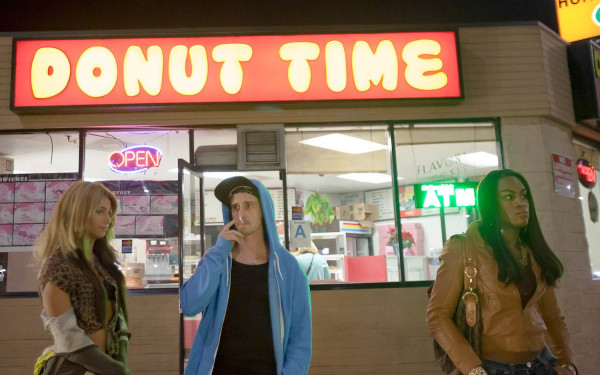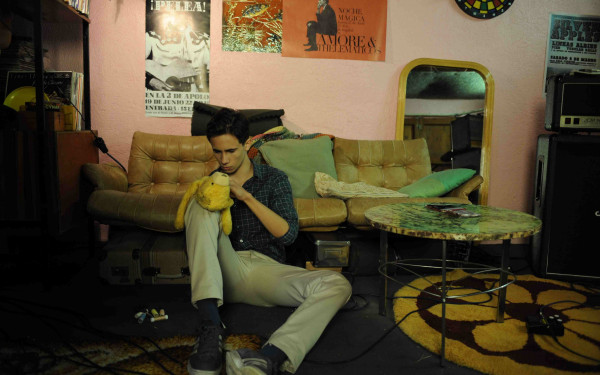FANTASIA REVIEW: Brigend Draws Viewers into Dreamscape
Brigend is a slow, dreamy, hauntingly hypnotic yet utterly beautiful art house film and the debut feature from Danish writer and director Jeppe Rønde. In the same vein of past festival favourites Metalhead and When Animals Dream, Brigend is inspired by true events in a sleepy town of the same name in South Wales.
A teenage girl, Sara, and her cop dad, Dave, leave Brixton to return to Sara’s childhood hometown, Brigend. Tasked to solve a string of mysterious teenage suicides gripping the town and British tabloids, Dave soon learns Brigend harbours darkness, and only the teenagers seem to know anything. With no common thread other than the parents always being the first to find them, Dave is grasping at straws as young Sara is lured deeper into a mysterious clique’s disturbing influence.
Underneath the film’s exploration of sex, drugs, partying, and bullying, Brigend’s teen antics and rampage (robbing liquor stores and skinny dipping), quickly take on dark new meanings, far beyond hooliganism and parental rebellion. The rituals of the boys (and Sara) swinging from ropes across speeding trains, hurling names of the dead in the forest suicide shrines and, of course, skinny dipping in the river, transcend the troubled young person narrative. It is tribal in behaviour, with cultish rites, rituals, and initiations that form a new tribe to replace each of their previous nuclear family dynamics, breaking from things like Sara’s sweetheart’s hypocritical and callous priest father to Dave’s “affair” with another woman at the police station, which Sara sees as dishonouring her dead mother.
Even on the surface, this film also looks and feels mesmerizing. Brigend lulls audiences into a lucid cinematic dreamscape. Indeed, its pre-Roman ruins, hilly town architecture, lush and ominous forest landscape looks like the foggy entrance to the realm of the dead, where souls of their friends beckon them. At times, the film evokes undercurrents of the supernatural and the occult while remaining humanist in its elements. The flawed promises of love, friendship and escape keep the teens lying between cult and community, blurring the realms between the living and the dead, that often blend together. Scenes like the naked dead bodies in the water or the final nude swim scene amidst a burning Brigend represent this duality. Likewise, the metaphor of the teen’s Internet chat room, where everyone is naked, explores being interconnected yet isolated in their world. The Internet serves as the realm of the dead, sucking in the anguished souls of youths into the other world, cyberspace, until they’ve disconnected all ties to our world and nothing is left but a cold and bare husk, before severing their mortal coils.
At times, the inevitability of the suicides feels constant and imminent, but never predictable, keeping audience engaged. Leaving the door wide open, the film (unlike the adult characters) don’t paternally rationalize or try and solve the suicides. Instead, Brigend presents suicide as it is. Because of this, the film could possibly be Fantasia’s best European indie release.



_600_375_90_s_c1.jpg)


2014_Marvel_600_375_90_s_c1.jpg)